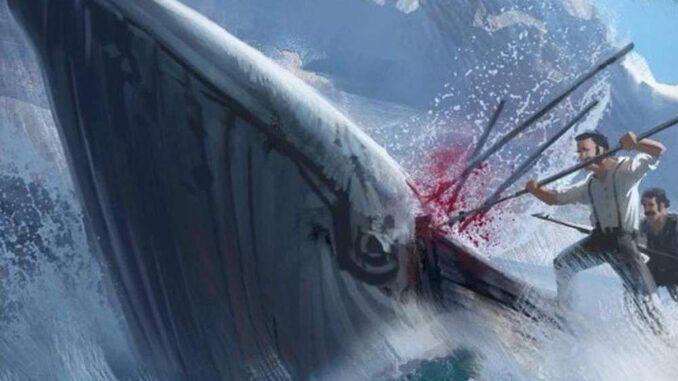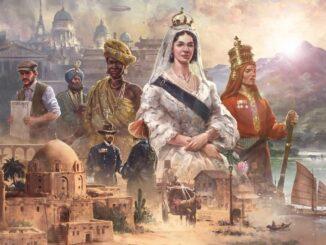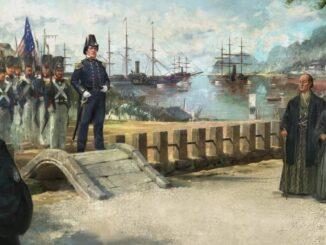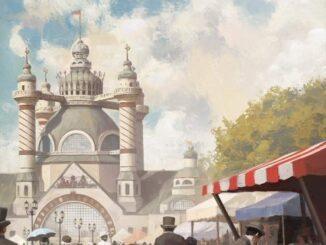
Victoria 3’s economic model is combined of several interrelated systems: Standard of living, Wealth, Pop needs, and Consumption.
Guide to Standard of Living System
Standard of Living Score
All pops in Victoria 3 have a standard of living score between 1 and 99, which represents how great their life is. Pops with levels 1-4 are labeled Starving, levels 5-9 are Struggling, and so on through Impoverished, Middling, Secure, Prosperous, Affluent, wealthy, Lavish, and at levels 60+, Opulent. We don’t really expect a lot of pops to reach levels 60+ but – knowing you folks – we’ve left plenty of headroom to accommodate your mad economic experiments.
Standard of living affects two major aspects of the game: birth/death rate, and pop loyalty.
Birth rate is simply the percentage of children born to pops each year, while death rate is the percentage of pops who die. Both values start out high and decline with increasing standard of living, but birth rate declines slower than death rate, leading to a net increase in population growth with increasing standard of living. This system models that increasing standard of living tends to lead to longer life expectancy but declining birth rate. Each parameter can be modified independently by a variety of effects.
Pop loyalty is altered whenever their standard of living increases or declines from its current value. Martin will get into much more detail on this in next week’s Development Diary on Political Movements.
Wealth
A pop’s wealth attribute forms the foundation for its standard of living. Pops can also gain more intangible boosts or penalties to their standard of living from any number of sources.
Pops accumulate wealth over time while their weekly income exceeds their weekly expenses. Conversely, if a pop’s expenses exceed its income, wealth will decline. How large their expenses are depends on what and how much they consume, which is also dependent on their wealth. What this means is that as long as a pop’s income remains the same, and the cost of the goods and services in their state and market remains the same, that pop’s wealth will over time drift towards exactly the level of consumption they can afford to sustain. Of course, as wealth changes the consumption also changes, which affects the prices of the goods in the market, which might in turn affect their wages, dividends, etcetera.
Wealth has a number of functions in addition to forming the basis for standard of living. A pop’s raw Political Strength (excluding any such power conferred by the country’s Voting Franchise, which is treated separately) is dependent on their wealth. Some privately operated Institutions provide benefits to pops only in relation to their wealth. Many Professional Qualifications also require pops to have a certain amount of wealth.
Pop Needs
Each wealth level is defined by a set of needs and an amount of “value” that needs to be spent on goods to fulfill that need. This “value” is defined in goods base prices, such that the need for Standard Clothing for a pop of size 10,000 with wealth level 14 might be fulfilled by buying £87 worth of Clothes, assuming perfectly balanced supply and demand. If the actual price of Clothes where the pop lives is over-demanded, their cost to fulfill this need will also be higher. As a result, cheaper goods means wealthier, happier pops.
Many needs can be satisfied by a variety of different goods. For example, the need for Heating requires Wood, Fabric, Coal, Oil, and/or Electricity. These can be purchased in any combination assuming the total base prices add up to the required value. When given this option pops will attempt to make a rational purchase decision based on which goods are the most available, satisfying their need with some mix of these goods or even only one, if that’s the only one available. In this way an inland, isolated state might not consume any Fish at all as long as it has sufficient Grain, Fruit, Meat, or even packaged Groceries to satisfy their need for food.
Goods can also appear in several different needs categories. Groceries, Meat, and Fruit can fulfil the need for both Basic Food and Luxury Food, but Grain or Fish can only fulfil the need for Basic Food. As a result, maintaining only Millet Farms and Fishing Wharfs to meet your food needs will mostly satisfy your poor pops, while focusing on Livestock Ranches and Banana Plantations will cause wealthy pops to inflate the price of the available food supply and further impoverish the poor. Operating productive Food Industries that can turn Grain and Fish into Groceries is good for everyone in your country, and frees up any available supply of Meat and Fruit to be consumed by those with a need for Luxury Food.
Lower wealth levels have only a handful of needs, such as Simple Clothing, Heating, Basic Food, and Intoxicants. The middle levels introduce more refined needs like Household Items, Services, Luxury Drinks, and Free Movement. Really wealthy pops consume increasingly vast quantities of Luxury Goods to impress and outdo their peers. In some cases needs disappear entirely in favor of more diverse needs. The need for Simple Clothing which can be satisfied by both Fabric and Clothes will, as a pop is raised from abject poverty, be gradually phased out by the need for Standard Clothing which include only professionally sewn items.
Introducing new goods into your market will help you diversify your economy and alleviate the demand on crucial industrial goods. Importing Oil – either petroleum from newly discovered deposits or whale oil from the few places in the world that produce it – will cause your pops to buy some quantity of it for heating instead of Coal or Electricity, which lowers the price of those goods and help make your industries more profitable. Introducing Opium into your market will decrease pop demand for Liquor and Tobacco… for good or ill.
Some goods are favored over others by default if available. Once Electricity is available to them, due to its convenience pops will prefer to buy it over Wood or Coal, even if they’re the same price. Some goods can be replaced by other goods entirely, while others will always be required to some bare minimum. Train travel can completely replace the need for having your own Automobile to drive around in, but having an Automobile doesn’t ever completely remove the need for an occasional train ride to see your cousin who lives all the way in Paris.
Obsessions and Taboos
In addition to these factors cultures can develop obsessions for certain goods, and some even have taboos they must abide by. A country can also encourage or discourage the consumption of certain goods using Authority, perhaps in an effort to avoid enriching a hated enemy or entice pops to buy something that’s heavily taxed over something that is not. This impacts the purchase habits of pops affected despite this being irrational from a strictly financial perspective.





Be the first to comment